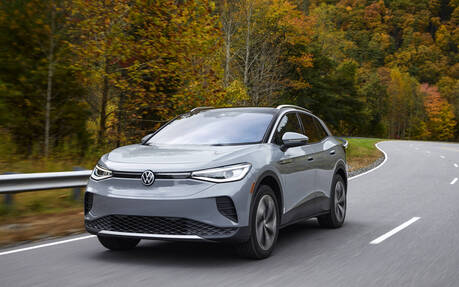VW and Mercedes Will Sign Deals with Canada For EV Battery Materials
A series of tariff-friendly agreements that aim at securing raw materials such as nickel, cobalt and lithium in Canada for battery productions will be signed Tuesday in Toronto with German Chancellor Olaf Scholz and Canadian Prime Minister Justin Trudeau in attendance according to Bloomberg. A business delegation including representatives from Volkswagen and Mercedes is also said to be part of the trip.
The people close to the matter preferred not to be identified, but the accords come at a time when manufacturers want to diversify their sources and reduce their dependence on Chinese raw materials.
- Also: Toyota to Invest $17 Billion in EV Batteries
- Also: Ford to Build its Own EV Batteries with SK Innovation
Volkswagen wants to shorten supply chains for its facilities in the U.S. and avoid difficulties linked to tariffs and tax regulations in the United States. The Biden administration’s Inflation Reduction Act allows car buyers to keep riding the maximum US$7,500 in tax credits for electric vehicles, as long as the manufacturer of the vehicle in question sources minerals from or processed in countries where there is a free trade agreement with the U.S.

Moreover, a large percentage of battery components within the vehicle need to be manufactured or assembled in North America.
Last week, Industry Minister François-Philippe Champagne says he's played matchmaker between mining companies and car manufacturers seeking minerals to pursue their ambitious electrification plans.
Olaf Scholz wants to work with Canada to help Europe’s biggest economy reduce its reliance on Russia for energy and raw materials. According to the German Leader, Canada “has similar rich natural resources as Russia -- with the difference that it is a reliable democracy.”
VW is planning six battery manufacturing facilities in Europe, while Mercedes wants to build eight facilities globally in partnership with Stellantis.
